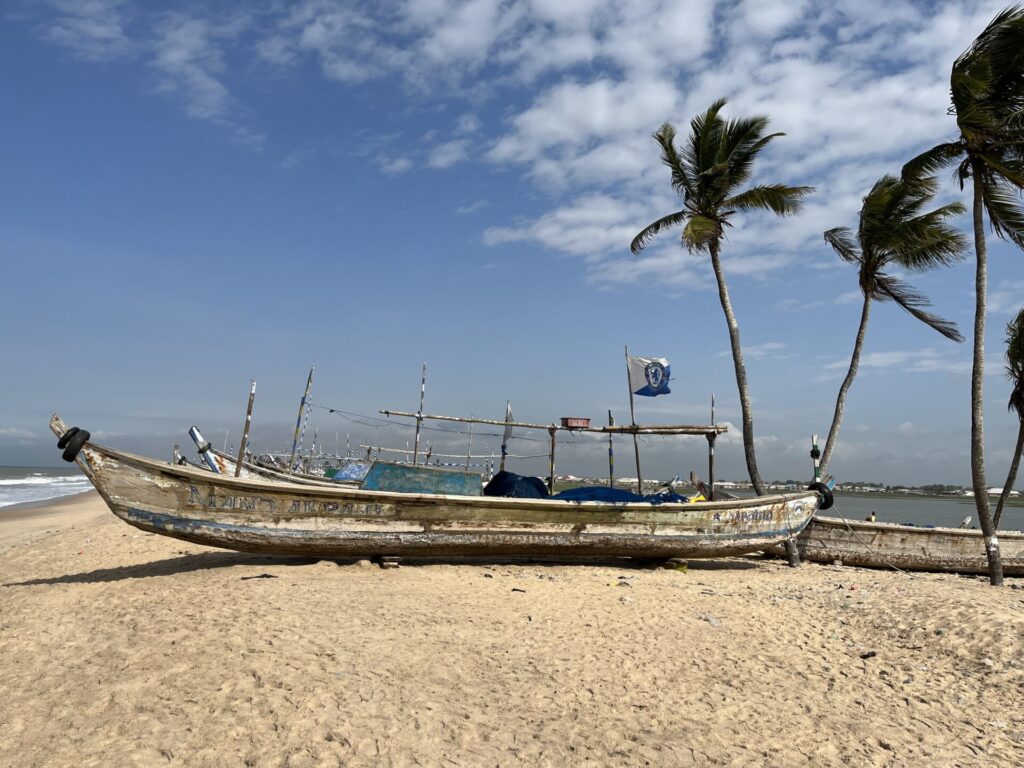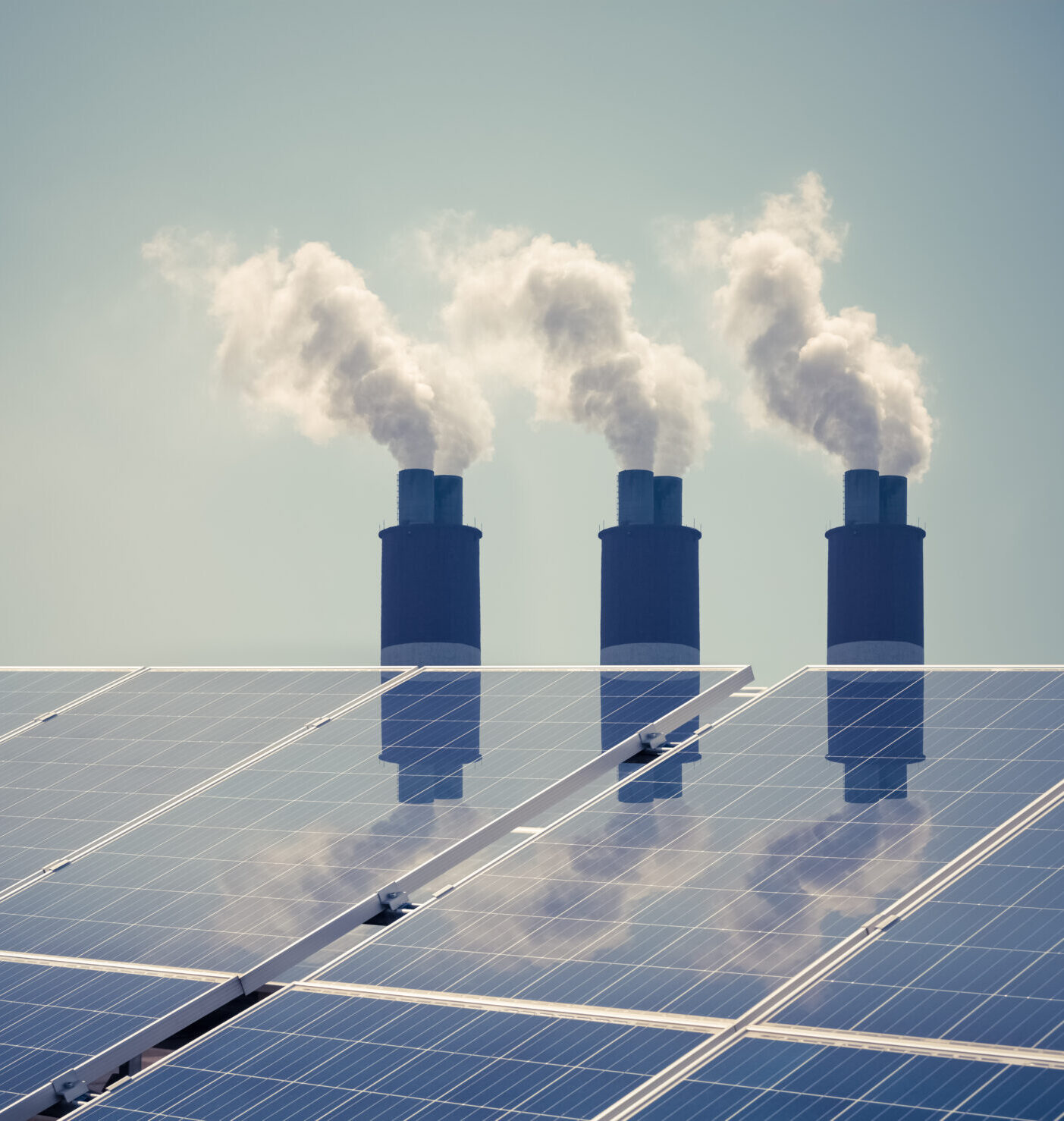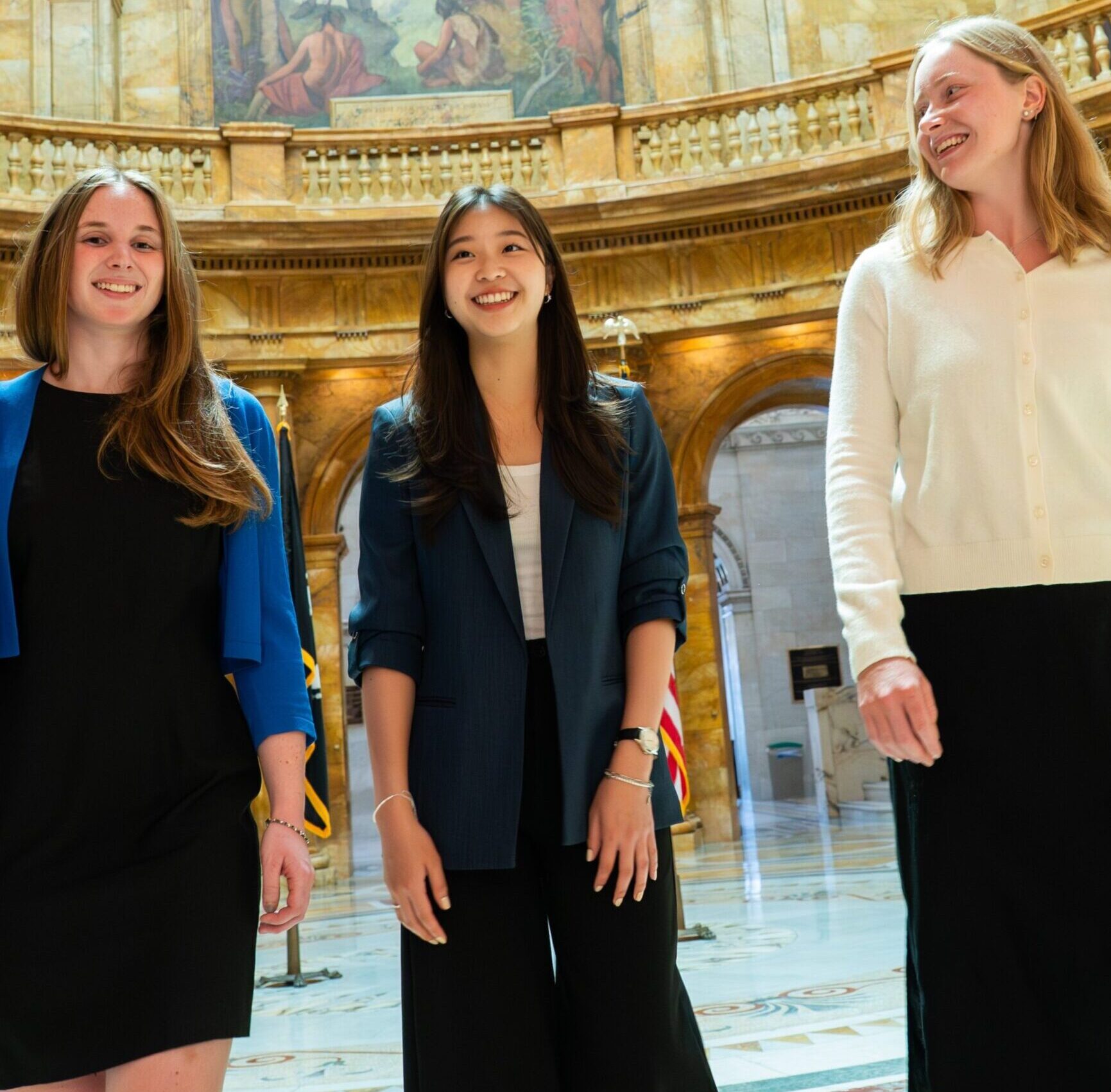Fishers on the Gulf of Guinea: Climate, and the Income Diversification Imperative
This new Salata Institute white paper addresses these questions by considering traditional fishing communities in West Africa threatened by ocean warming.

Coastal fishing communities in West Africa’s Gulf of Guinea are under economic stress due to significant declines in their principal catch of small pelagic fish – fish that live in the open water.
The total catch of small, sardine-like pelagic fish declined by 59 percent in Ghana between 1993 and 2019, and in Côte d’Ivoire by nearly 40 percent between 2003 and 2020. These declines, which have been underway since the 1990s, are in part a result of ocean warming, driven by climate change. Roughly 90 percent of added heat in the atmosphere is absorbed by the ocean, and ocean warming has triggered fish migrations away from the Gulf of Guinea. This problem is made worse due to illegal fishing by Chinese industrial trawlers and over-fishing from traditional local canoes.
Surveys by Harvard researchers working with local partner universities reveal that 90% of local fishing community members in Ghana, 85% in Côte d’Ivoire, and 66% in Nigeria believe their children will not be able to rely on fishing in the future, or on the processing and marketing of fish.
This paper is part of the Climate Adaptation in the Gulf of Guinea research cluster at the Salata Institute and authored by:
Emmanuel Akyeampong
Ellen Gurney Professor of History and Professor of African and African American Studies
John M. Kusimi
Associate Professor of Physical Geography in the Department of Geography and Resource Development at the University of Ghana
Robert Paarlberg
Emeritus Professor of Political Science at Wellesley College, an Associate in the Sustainability Science Program at the Harvard Kennedy School, and an Associate at Harvard’s Weatherhead Center









